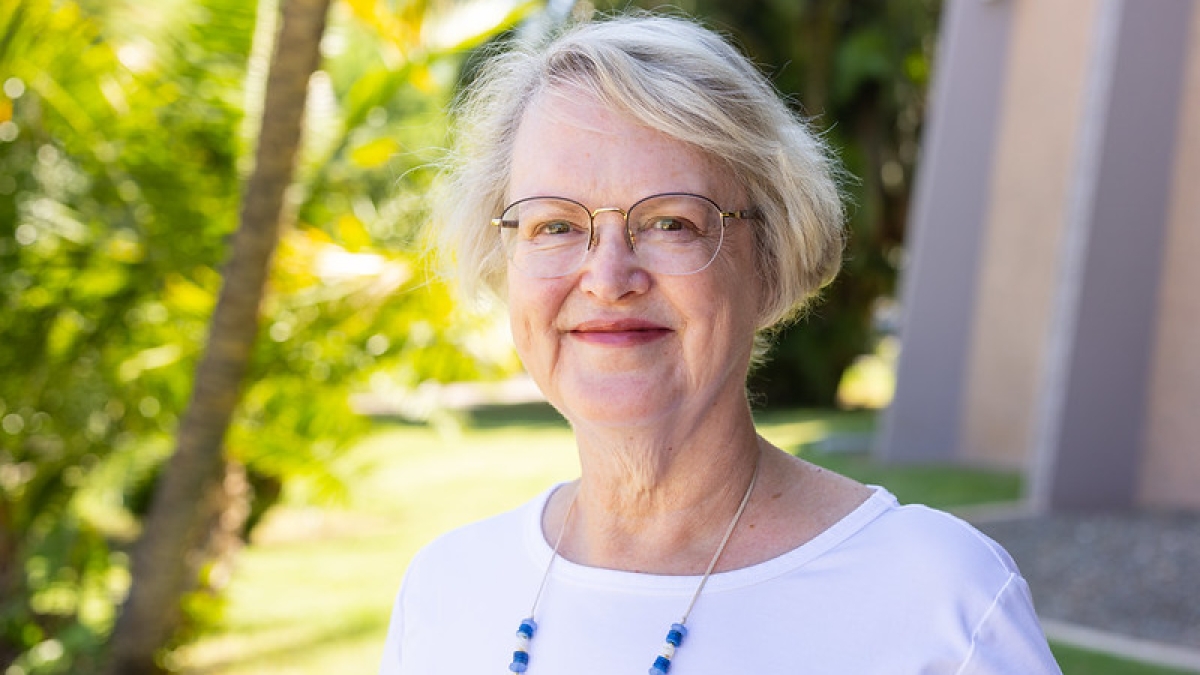ASU, Association for Women in Science partner to advance female representation in STEM

Department of Physics Chair Patricia Rankin helped facilitate the partnership with ASU and the Association for Women in Science. Photo by Meghan Finnerty
In 1988, when Patricia Rankin accepted her first faculty position as an assistant professor of physics, she was the only woman in the department. She took note of the fact but was undeterred from excelling in the field, going on to work as a program officer for particle physics at the National Science Foundation for two years before returning to academia and serving in a variety of administrative roles.
During that time, she continued to notice the lack of women in STEM fields, particularly in leadership positions. Compelled to address the issue, she shifted her academic focus accordingly and has since made great strides toward improving the representation of women in physics.
Rankin is still advancing the cause, and in her latest effort, she has helped to facilitate a partnership between Arizona State University and the Association for Women in Science (AWIS) that will not only serve to advocate for women in STEM, but will provide students and faculty free access to a host of resources, including an online community of women in STEM and allies, networking and mentorship opportunities, job postings and career insights.
“The goals of AWIS are so aligned with the university’s charter goals, and it seemed a natural match,” said Rankin, Department of Physics chair at ASU. “Partnering with AWIS allows us to think more broadly about diversity and inclusion and produce lasting engagement.”
One thing that excited Rankin about the partnership was the opportunity to introduce ASU faculty and staff to The Inclusion Habit, a program AWIS offers their partners in which members engage in brief daily activities for three months and learn to recognize bias, transform their mindset, enhance empathy, proactively change their behavior and create new habits.
“The great thing about this partnership is that it is general. It’s open to allies and people interested in good working conditions,” Rankin said. “(The Inclusion Habit allows) people to engage daily with the information and put it into practice.”
Kenro Kusumi, dean of natural sciences at The College of Liberal Arts and Sciences, shared his support.
“Through this partnership, we are continuing to invest in student success and build up opportunities for what learners can achieve in the STEM field,” he said. “Engaging and supporting learners of all backgrounds is an ongoing effort supported not only by The College leadership, but by the university, which focuses on enabling academic access to every student."
Early on in Rankin’s career, the argument was that the lack of representation of women in STEM was the result of a lack of role models. So women were taught negotiation and networking skills, which were considered masculine skills, to help them succeed in the male-dominated fields.
Over time, the focus has shifted toward creating a sense of belonging and appreciation, something Rankin can get behind.
“A big part of retention is students feeling that you’re invested in their success,” Rankin said. “Creating an environment where you care what happens to them and want to see them succeed will bring people into the field who may not have otherwise been there.”
More Science and technology

ASU-led space telescope is ready to fly
The Star Planet Activity Research CubeSat, or SPARCS, a small space telescope that will monitor the flares and sunspot activity…

ASU at the heart of the state's revitalized microelectronics industry
A stronger local economy, more reliable technology, and a future where our computers and devices do the impossible: that’s the…

Breakthrough copper alloy achieves unprecedented high-temperature performance
A team of researchers from Arizona State University, the U.S. Army Research Laboratory, Lehigh University and Louisiana State…

